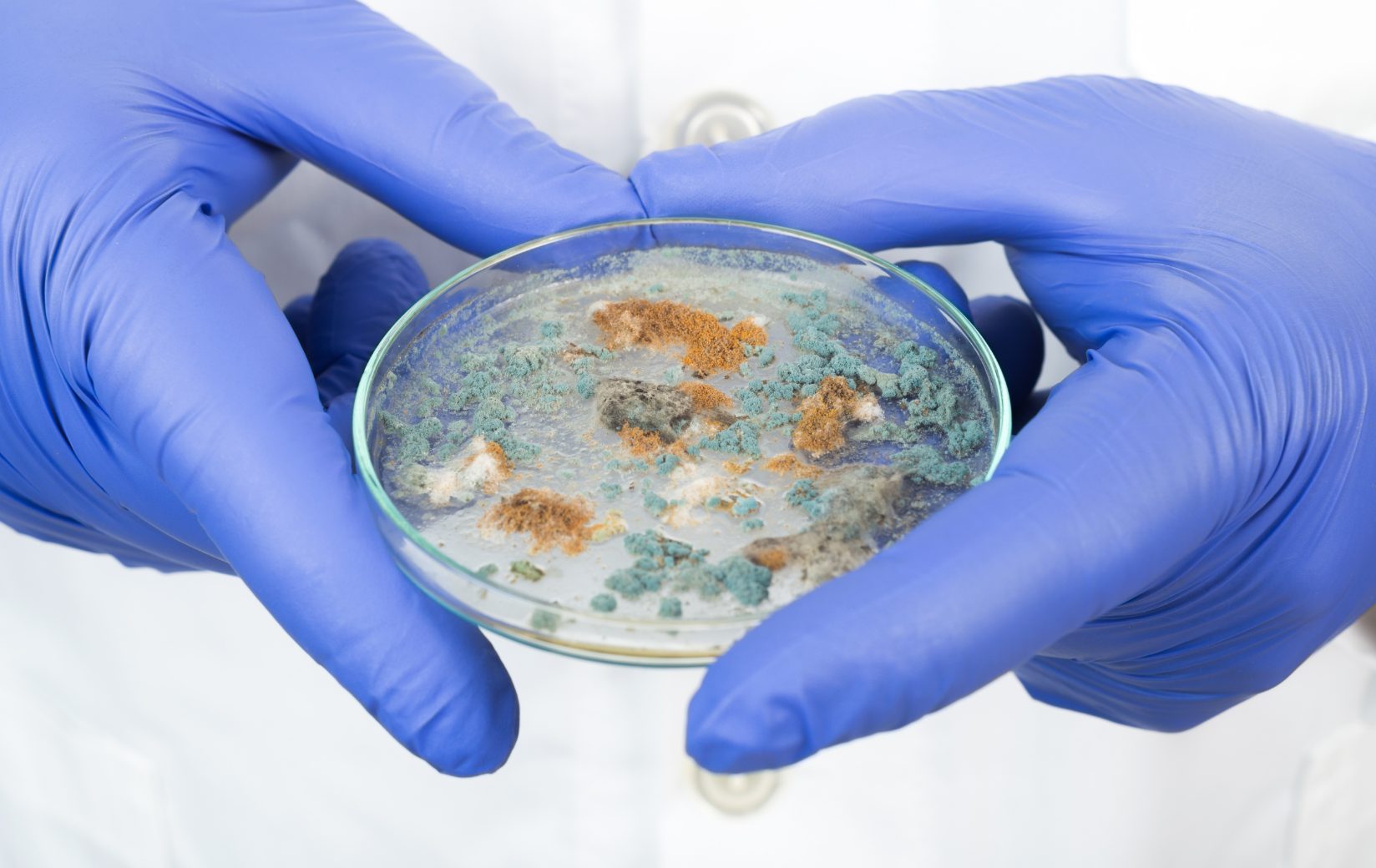For anyone managing a cleanroom over the past year, perhaps busy developing their contamination control strategy, the topic of sporicides will likely have been a recurring theme.
They’ve historically been unpleasant, not to mention inconvenient to use.
Why are sporicides so important?
But with microbial resistance on the up and newly-revised EU regulatory guidelines specifying that they have to be used in the manufacture of sterile medicinal products, sporicides are very much a necessity.
What are sporicides?
Sporicides are chemical disinfectants specifically formulated to eliminate microbial spores. Spores are an extremely resilient form of certain microorganisms (including some types of bacteria and fungi). They are hard to destroy, so can be resistant to traditional disinfectants. Sporicides are specifically designed to address this challenge by eradicating spores.
Sporicides are typically used in environments where there is a higher risk of spore contamination, such as in healthcare facilities, laboratories, or areas with known spore-forming pathogens.
Annex 1 defines a sporicidal agent in the following way: “An agent that destroys bacterial and fungal spores when used in sufficient concentration for specified contact time. It is expected to kill all vegetative microorganisms.”
Understanding spores
The term ‘spore’ is used quite broadly in biology. A spore is a type of reproductive cell
produced by certain kinds of plants, algae—and in the context of healthcare, more importantly—fungi and bacteria.
Spores are usually dormant with thick walls and can survive under extremely unfavourable conditions.
When it comes to bacteria, spores form as a kind of survival mechanism. In difficult conditions, spores form around certain types of bacterial cells, making the
bacteria inactive but protecting them with a thick protective coating. This process is called sporulation.
When conditions improve, spores can reactivate and break open, ‘waking up’ the bacteria which can then reproduce.
Spores are extremely hard to destroy
Spores are recognised as the hardiest known form of life on Earth.
Alive but dormant, these spore cells can survive conditions that would be impossible for other forms of life.
Researchers have seen some spores survive after exposure to radiation, acids, and disinfectants, in excessive extremes of temperature and without water or air.
Bacterial spores can even survive in space. In 2017, Russian astronauts swabbed bacterial spores on the outside of the International Space Station. (The bacteria is now broadly believed not to be extraterrestrial in origin but brought by astronaut’s tablets.
This means, that space agencies, not unlike cleanroom operators, have strict contamination control measures to control the level of bacterial spores.
NASA reports that “by international agreement, only 300 spores are allowed to be present per one square meter of spacecraft surface if the mission is going to a celestial body that could support life.”
Spores can survive for years
Bacterial spores can germinate even after years (or even centuries) of dormancy. In 2016, locals fell sick from ancient anthrax spores stored in frozen soil in Siberia when the ice melted.
Researchers have discovered and revived bacterial spores millions of years old in Arctic permafrost and the stomachs of bees preserved in amber. To date, the oldest microbe ever discovered was a bacterial spore trapped inside giant crystals of rock salt in a cave in New Mexico. Researchers dropped the 250 million-year-old spores in a culture dish and watched the bacteria come back to life.
The role of sporicides in the pharmaceutical industry
Since spores are so robust, they can present a significant challenge in contamination control. They exist widely in our air and soil. Being so hardy, they have, unlike other forms of microorganisms, a remarkable resistance to standard disinfection methods. This resilience increases the likelihood of spores surviving routine cleaning procedures, posing a continuous threat to the sterility of pharmaceutical manufacturing facilities. In the event that spores persist, they can serve as a source of recurrent contamination, leading to potential outbreaks of infectious agents.
In the pharmaceutical industry, stringent disinfection protocols are imperative to prevent contamination of sterile drugs and uphold product quality. As sporicides improve, pharmaceutical companies increasingly turn to them to eradicate resilient microbial spores. This targeted approach enhances the industry’s ability to maintain the sterility of drugs, meet regulatory standards, and fulfil commitments to patient wellbeing.
What does the guidance say?
According to the 2023 revised Annex 1 guidelines for sterile manufacturing, “disinfection should include the periodic use of a sporicidal agent.” The appropriate rotation in your contamination control strategy depends on the specific environmental risks and contamination factors present in your pharmaceutical facility. This could mean rotating sporicide applications in your disinfection regimen weekly, biweekly, or monthly.
Introducing Zyceine
Zyceine is an award-winning sporicide developed by AGMA to address the challenges posed by resilient microbial spores. This innovative solution boasts a unique formulation that ensures an effective elimination of spores. We developed Zyceine so that it wouldn’t share the drawbacks that sporicides have traditionally had. Totally stable until activated, Zyceine has a 2-year unopened shelf-life with a unique two-compartment design, and unlike many more corrosive sporicides, it should not cause damage to delicate surfaces if wiped off after 15 minutes.
You can learn more about Zyceine in our previous blog here.
In summary
- Sporicides are essential in cleanroom management due to revised EU regulations and rising microbial resistance.
- These specialised disinfectants target resilient spores, which pose a persistent threat and are more resistant to traditional methods.
- Pharmaceutical industry guidelines, including the 2023 Annex 1, stress the monthly application of sporicidal disinfectants to prevent contamination and ensure sterile drug manufacturing.
- Zyceine, an award-winning sporicide by AGMA, offers rapid spore kill, addressing the challenges posed by persistent spores.
- Persistent spores can lead to recurring contamination and outbreaks, emphasising the critical role of sporicides in pharmaceutical disinfection strategies.
- Stringent disinfection protocols, incorporating sporicides, are crucial for maintaining drug sterility, meeting regulatory standards, and ultimately ensuring patient safety in the pharmaceutical industry.
Shop Zyceine now.


